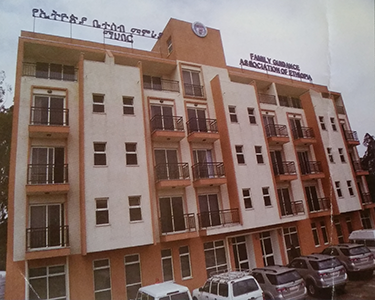By Tesfaye Getnet – August 29, 2016

Maaza Kitaw, Family Guidance Association of Ethiopia president
Maternal and child mortality has gone down in Ethiopia but in the past 25 years the population has almost doubled to 100 million. Some worry that this will make it difficult to continue to fight poverty. Family Guidance Association of Ethiopia (FGAE), which just celebrated its golden jubilee has been working in family planning. Despite its success, the association needs more funding. Capitals’ Tesfaye Getnet spoke to association president Maaza Kitaw about the status of family planning in Ethiopia.
Capital: What are the major achievements that Family Guidance Association of Ethiopia (FGAE) has accomplished in the past 50 years?
Maaza Kitaw: Around 50 years ago a small group of Ethiopian people who had studied in India came up with the idea of teaching people the importance of family planning in reducing child and maternal mortality. However, at the time having more children was considered a blessing. Even though there was some resistance people encouraged officials to work in the community and emperor Haile Selassie silently supported the group His support led to more and more volunteers and by 1989 the country encompassed family planning as a health policy.
FGAE has grown by leaps and bounds deploying over 18,000 volunteers and 740 employees to run its services. Operating under the main office and its eight branches, located in eight regional states and two city administrations, FGAE has a network of 55 clinics, 200 outreaches sites and more than 300 private family planning offices. In the last two decades, the association has strengthened its services and is now providing comprehensive and integrated sexual health services including maternal and child health, family planning, HIV/ AIDS and STI education, screening and treatment, adolescent reproductive health, infertility, cervical cancer screening and treatment. And we strongly believe that have played a role in reducing child and maternal mortality in Ethiopia and that the country has succeeded greatly.
Capital: In the past 25 years Ethiopia’s population has doubled and some say this is the due to poor family planning what do you think about the issue?
Maaza Kitaw: We are trying our best to serve the whole country but more needs to be done. Previously one mother used to give birth to seven children but know that number has been reduced to four so family planning has made a difference.
Capital: According to some statistics by 2050 the population of Ethiopia will be around 188 million so how might this population growth relate to poverty?
Maaza Kitaw: Population growth is a danger to the country because resources are limited. Especially in the rural areas having children without enough land or financial areas will make it hard for people to get over the poverty line. Health centers across the country need to educate people about the danger of unwanted pregnancy and the importance of family planning for a better future.
Capital: Should Ethiopia follow a one or two child policy to reduce the population growth?
Maaza Kitaw: Absolutely not, restricting women from bearing children goes against human rights. We don’t need a policy that requires a birth permit before becoming pregnant this will increase the number of abortions. We don’t need to monitor the reproductive cycles of all women of childbearing age through a system of mandatory, regular, and crudely invasive physical check-ups.
What we need to is to tell parents the benefits of proper family planning.
 Maaza Kitaw, Family Guidance Association of Ethiopia president
Maaza Kitaw, Family Guidance Association of Ethiopia president
Capital: You have prepared a plan for the coming five years, what is the new strategy?
Maaza Kitaw: We want everyone who needs our service to get it so we plan to provide service to 14 million people across the country. We want to conduct more sexual education by collaborating with other agencies and volunteers. To serve the most vulnerable and the disadvantaged we will make a push to ensure that every woman has the information and services she needs to decide when and how many children to have. We have seen the gains for women, families and communities when there is equitable access to voluntary family planning and contraceptive services, and the devastating effects when there is not. The benefits of family planning go beyond the individual. Access to a full range of contraceptive options will significantly reduce maternal and infant deaths and improve the health of families. Allowing young women to plan whether and when they want to start their families gives them the option to stay in school, join the workforce or pursue other dreams and we hope the new strategy will address this.
Capital: What do you have to say to youth?
Maaza Kitaw: Ethiopians should always think of more beneficial ways to do things before taking any decision especially on family matters. There are so many books now that can be read in local languages which can tell you about good family planning.
Capital: Despite your success in the past 50 years you are facing a critical financial crisis.
Maaza Kitaw: Yes, almost 90 percent of our budget comes from foreign aid mostly from the Netherlands but our funds are decreasing due to the global financial situation. One option is to charge some money to the people who are willing to pay for the services we give them, and we are planning to include many business people in our association which will help us financially.
Capital: Have you had problems with staff retention?
Maaza Kitaw: Yes, many workers left us not because of administrative problems but due to the salary. Large organizations can pay three times what we can afford.

